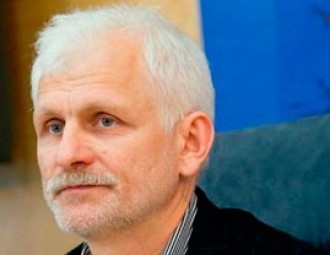Ales Bialiatski is awarded with Paweł Włodkowic Prize

Poland’s ombudsman handed the prize to the Belarusan human rights defender and ex-political prisoner for defending truth and universal human values.
The ceremony on the occasion of International human Rights Day was held in the Polish Senate (upper Chamber of the Parliament) on December 11. At the ceremony Ales Bialiatski, Vice-President of FIDH and the President of Human Rights Centre “Viasna”, was awarded with Paweł Włodkowic Prize.
The Prize is named after a distinguished scholar (ca. 1370 – 1435), jurist and rector of the Cracow Academy who defended Poland and native non-Christian tribes against the Teutonic Knights and its policies of conquest.
Let us recall that in November 2011 Ales Bialiatski, Vice-President of the International Federation for Human Rights (FIDH), was sentenced to 4.5 years of imprisonment in a medium security penal colony and seizure of property for alleged tax evasion. The fact of his holding bank accounts in Poland and Lithuania gave the grounds for criminal prosecution. The cash standing to the credit of accounts was used for human rights defence activity: the centre financially supported the people affected by Lukashenka’s regime. In court Bialiatski stated that he had no other possibility of getting financial aid from foreign backers. Having spent over 1,000 days in jail, Ales Bialiatski was released in June, 2014.
-
03.01
-
07.10
-
22.09
-
17.08
-
12.08
-
30.09



























